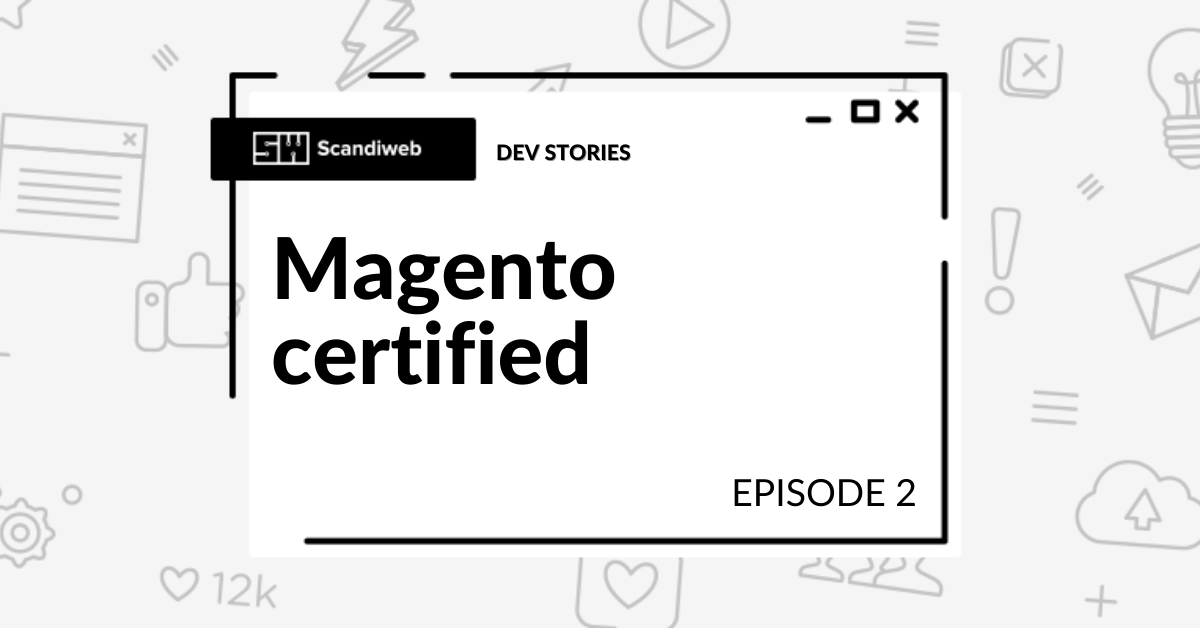This is a blog series sharing the background of Scandiweb’s developers, all part of the largest certified developer and solution specialist team in Europe and the US. Follow along!

Vladislavs Zimnikovs:
“Even though I lacked hands-on experience in eCommerce website development before joining Scandiweb, I had a good grasp on programming basics, like variables, functions, loops, and conditional statements, as well as Object-Oriented Programming. I had attended different courses and a development bootcamp in Java language that gave me a tremendous amount of knowledge, the experience of working in a team on a project, and an understanding of good web development practices.
How to prepare
The EDU program here at Scandiweb was the main source of knowledge when preparing for the Magento certification exam. I also got familiar with the theory described in the Magento 2 Certified Associate Developer Exam Study Guide to understand basic Magento functionality and what features it offers to developers.
It was easy to try all things on your own, which is a very important part of the educational process – you won’t completely understand how the system works until you dig into it yourself.
Magento exam for associate developers covers such topics as:
- Module skeleton: what files should exist in the module folder so Magento can properly work with it
- Directory and File structure: where are Magento modules, the ones developers create on their own, or third-party company modules located; the file structure of modules
- What files can be created in the module directory; what functionality they offer / what purpose they serve
- Route handling on the back end: routes.xml, controllers (this topic is also related to directory and file structure), views, templates
- Usage of XML files to customize page layout
- Understanding of plugins in Magento
Benefits from the exam
The exam seemed difficult in terms of details it asks from you. To pass it, the developer has to be fluent in all of the topics listed above and additional areas. I finished it 30 minutes before the end of the exam, and while I understood most questions, answering some of them required relying on chance.
The preparation for the exam and the exam itself gave me a lot of knowledge and experience that improved my work on real projects. I no longer have to search for solutions when trying to implement common things – I already know how to do it or where to look for quick answers. Even my repository with code from the EDU program helped me once to implement custom functionality for the Magento admin panel.
My main suggestion for other developers is not to only read theory but also try as much as you can in practice. It might sound obvious, but it works this way. Theory, of course, is very important, but without practical experience, it will be hard for you to remember all the details, nuances, and mechanics that Magento offers. Magento is a vast platform of tools that you have to try one by one to become a confident and skillful developer.”
More episodes of Scandiweb’s Magento certified dev stories coming soon!


Share on: